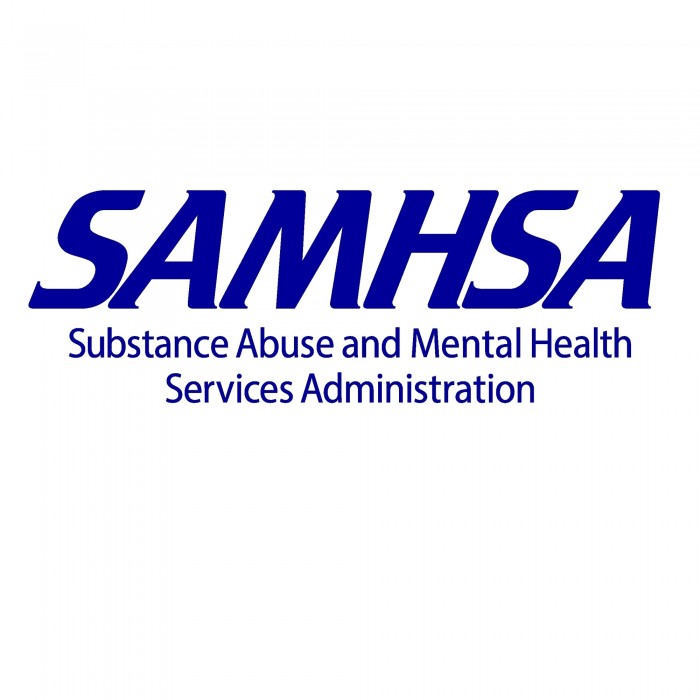The Pennsylvania OPIOID Command Center Strategic Plan for 2020–2023 was recently published. Please review the plan to see if there are any recommendations that we may want to make to align RCPA’s priorities with the state’s strategic plan. Questions, please contact Jack Phillips.
Health Privacy Rule 42 CFR Part 2 Is Revised, Modernizing Care Coordination for SUD
The Substance Abuse and Mental Health Services Administration (SAMHSA), part of the U.S. Department of Health and Human Services (HHS or Department), announces the adoption of the revised Confidentiality of Substance Use Disorder Patient Records regulation, 42 CFR Part 2. The adoption of this revised rule represents a historic step in expanding care coordination and quality through the Deputy Secretary’s Regulatory Sprint to Coordinated Care.
“This reform will help make it easier for Americans to discuss substance use disorders with their doctors, seek treatment, and find the road to recovery,” said HHS Secretary Alex Azar. “President Trump has made the availability of treatment for Americans with substance use disorders, including opioid use disorder, a priority. Thanks to the valuable input of stakeholders, our final rule will make it easier for Americans to seek and receive treatment while lifting burdens on providers and maintaining important privacy protections.”
The new rule advances the integration of healthcare for individuals with substance use disorders while maintaining critical privacy and confidentiality protections. Under Part 2, a federally assisted substance use disorder program may only disclose patient identifying information with the individual’s written consent, as part of a court order, or under a few limited exceptions. Health care providers, with patients’ consent, will be able to more easily conduct such activities as quality improvement, claims management, patient safety, training, and program integrity efforts.
“Coordinated care is a vital piece of President Trump’s vision for a patient-centric healthcare system, and regulatory reform is a key step toward promoting more coordinated care,” said HHS Deputy Secretary Eric Hargan. “As part of our Regulatory Sprint to Coordinated Care, these changes are just the beginning of a comprehensive agenda for reforming regulations that govern the delivery and financing of American healthcare, with the ultimate goal of better care, and better health, at a lower cost.”
“The adoption of this rule means Americans will be better able to receive integrated and coordinated care in the treatment of their substance use disorders,” said HHS Assistant Secretary for Mental Health and Substance Use Elinore F. McCance-Katz, MD, PhD, the head of SAMHSA. “We are grateful to the individuals and organizations that contributed their input to the rule-making process. This is great news for our nation’s families and communities.”
“Modernizing 42 CFR Part 2 will strengthen the nation’s efforts to reduce opioid misuse and abuse and to support patients and their families confronting substance use disorders,” the Assistant Secretary said. “The rule will make it easier for primary care clinicians to treat individuals with substance use disorders.”
“We need an all-hands-on-deck approach to treating substance use disorders,” said McCance-Katz. “We must do all we can to ensure the greatest access and availability to care for individuals living with substance use disorders. Although well-intentioned, the non-disclosure of critical, lifesaving information the previous rule permitted is itself stigmatizing.”
The ease of sharing information, with patient consent, among providers will enable better, higher-quality care for those with substance use disorders. This serves as an important milestone in further aligning 42 CFR Part 2 and the Health Insurance Portability and Accountability Act of 1996 (or HIPAA) regulations.
To view a list of the changes in the final rule, please click here.
DDAP Announces 3.0 Service Alignment Webinars Now Available
Recently, DDAP hosted live webinars on the alignment of services within the 3.0 levels of care (3.1, 3.5 & 3.7) with The ASAM Criteria, 2013. The recorded version of this presentation, along with the PowerPoint slides are now available on the ASAM Transition page on the DDAP website.
Questions regarding alignment of 3.0 services to the ASAM Criteria may be submitted by email for inclusion in WebEx Q&A sessions to be held on July 27 and July 28 (see Rollout Schedule on DDAP website) and an FAQ that will be made available around the same time.
DDAP Reminds D&A Providers about Unusual Incident Reporting
Health Systems and Academic Medical Centers Selected for Regional Response Health Collaboration Program
FOR IMMEDIATE RELEASE
July 14, 2020
Harrisburg, PA – The Department of Human Services (DHS) today announced applicants selected to participate in the Regional Response Health Collaboration Program (RRHCP). The RRHCP will directly support COVID-19 continued readiness and response planning in long-term residential care facilities, improve quality of care related to infection prevention, expand COVID-19 testing to include asymptomatic staff and residents in facilities, and facilitate continuity of care and services provided by long-term care facilities in an attempt to mitigate the risk of spread of COVID-19 to staff or residents. This effort is a collaboration between DHS, the Pennsylvania Department of Health, Centers for Disease Control and Prevention, and the Pennsylvania Emergency Management Agency.
“Long-term care providers provide a home and care for some of the most vulnerable Pennsylvanians, and COVID-19 remains a serious threat. The Wolf Administration will continue to do all we can to support our long-term care providers during this pandemic and beyond,” said DHS Secretary Teresa Miller. “The Regional Response Health Collaboration Program will build on accomplishments thus far and be a resource to long-term care facilities as COVID-19 evolves. Through these collaboratives, long-term care facilities will have a network to learn, respond, and prepare for what is ahead in the fight against COVID-19.”
More than 45,000 Pennsylvanians live in more than 1,200 personal care homes and assisted living residences, and more than 80,000 residents live in 693 skilled nursing facilities throughout the commonwealth. These residents are often some of the most vulnerable and susceptible to COVID-19 due to age, presence of existing health conditions that may lead to complications, and the congregate nature of these facilities.
The RRHCP will provide clinical, operational, and administrative support to protect residents in long-term care facilities from COVID-19. It will help those facilities implement best practices in infection control, implement contact tracing programs in facilities, support clinical care through on-site and telemedicine services, and provide remote monitoring and consultation with physicians. The RRHCP will assist in identifying alternate care arrangements for patients no longer requiring acute care but needing assistance in returning to their long-term care facilities.
Selected grantees will be awarded $175 million collectively through funding approved by the General Assembly. Funding for the RRHCP is divided regionally by the long-term care facility census in each region. Applicants selected and the regions they will serve include:
- Southeast Region ($65.8 million):
- Thomas Jefferson University
- University of Pennsylvania
- Northeast Region ($24 million):
- Geisinger Clinic
- Lehigh Valley Hospital, Inc
- Southcentral Region ($22.9 million):
- The Pennsylvania State University
- Northcentral Region ($9.8 million):
- Geisinger Clinic
- Southwest Region ($38.9 million):
- UPMC Community Provider Services
- Northwest Region ($13.6 million):
- LECOM Health
- UPMC Community Provider Services
The program will also support facilities as they enhance testing capability for both individuals in care and staff under the expanded statewide testing order released last month. The RRHCP partners will be a critical resource in implementing this testing order for facilities that do not have dedicated clinical staff.
The RRHCP is based on the Educational Support and Clinical Coaching Program (ESCCP), a learning network that provided technical assistance and educational support to long-term care facilities in light of the current pandemic. Unlike the ESCCP, which operated on a voluntary basis, the RRHCP will operate under grant agreements through December 1, 2020.
Visit the Pennsylvania Department of Health’s dedicated Coronavirus webpage for the most up-to-date information regarding COVID-19.
Guidance to DHS providers related to COVID-19 is available here.
MEDIA CONTACT: Erin James, ra-pwdhspressoffice@pa.gov
###
Provider Relief Fund Medicaid and CHIP Distribution Webcast Follow-Up
On June 24, the Health Resources and Services Administration hosted a webcast providing information regarding the CARES Act Provider Relief Fund Medicaid and Children’s Health Insurance Program (CHIP) Distribution. Based on feedback from the webcast, the administration has enhanced and expanded the available resources to help you better understand and, if eligible, take advantage of the program. Recently the they released the following information:
Recorded Webcast
A recording of the June 25 webcast is now available at hhs.gov/providerrelief.
Fact Sheet
We created a Fact Sheet highlighting eligibility requirements, details on use of the payments, and instructions on how to apply and attest to the Terms and Conditions.
Frequently Asked Questions (FAQs)
In order to better address your most important concerns, we have updated our FAQs to address the questions you submitted for the webcast. The FAQs include expanded information on eligibility, application, payment process, and more.
Application Instructions
Medicaid and CHIP Provider Distribution Instructions and the Medicaid and CHIP Provider Distribution Application Form are available at hhs.gov/providerrelief. We recommend downloading and reviewing these documents to help you complete the process through the Enhanced Provider Relief Fund Payment Portal.
Additional Information
For additional information, please call the Provider Support Line at 866-569-3522; for TTY, dial 711. Hours of operation are 7 am to 10 pm Central Time, Monday through Friday. Service staff members are available to provide real-time technical assistance, as well as service and payment support.
Thank you for all you are doing to support and protect the American people during this difficult time.
Thomas J. Engels
Administrator
Health Resources and Services Administration
United States Department of Health and Human Services
RELIAS Offers Free Webinar on Self Care
Often discussed and infrequently practiced, self-care is critically important during the profound and protracted COVID-19 pandemic. In addition to the understandable and normal waves of anxiety, depression, and stress that many feel during this uncertain time, the COVID-19 pandemic renders us more vulnerable to burnout, compassion fatigue, or vicarious trauma.
Register now and listen as Carolyn Allard, PhD (Professor and Program Director of the Clinical Psychology PhD Program at the California School of Professional Psychology (CSPP) at Alliant International University and research psychologist at VA San Diego Healthcare System), and Diana M. Concannon, PsyD (Dean of the California School of Forensic Studies at Alliant International University) discuss the particular reasons why COVID-19 both challenges our resilience and offers an unprecedented opportunity to incorporate self-care into our lives.
Mobile Fingerprinting Unit Open July 21 in Chambersburg PA
If your staff are in need of fingerprinting; there are available fingerprinting appointments on July 21, 2020; however, pre enrollment is required.
Location: Chambersburg Holiday Inn Express, 1097 Wayne Avenue, Chambersburg, PA 17201
Times: 9 am–5 pm, by appointment only, so everyone must pre-enroll. If individuals come to the event and are not enrolled, they may be turned away. They also ask that in order to maintain the COVID-19 safety measures, please do not enter the building until a few minutes before your scheduled appointment time.
Enrollment: Make sure to have your appropriate service code from your human resources department. If you do not know what the appropriate service code is and you cannot contact your employer, you may contact this email.
To be able to enroll for this particular event, you must use the special enrollment code of: SP-DHSCHAMBER721
For directions on enrollment, please review the attachment.
Further Requirements:
- When the individual enrolls, they will be sent an enrollment confirmation via email. They MUST bring their enrollment confirmation information with them to their appointment. It can be on their phone, it does not have to be printed out, but they must have it!
- They must bring an appropriate form of identification. The most common forms of identification are: Drivers License (if it has expired during COVID-19 (after March 1, 2020), please make sure to bring your renewal form), current passport, Pennsylvania State Identification, or Green Card.
- Everyone must wear a mask to the event and keep it on at all times until the Enrollment Agent asks them to remove it so that they can be photographed as part of the fingerprinting protocol.
Payment: If your employer is paying for your fingerprinting, please make sure to obtain a payment voucher code, as you will need that during the enrollment process. If your employer has not provided you with a payment voucher, you will be required to pay for the fingerprinting at the time of the event. The current cost is $23.85 and the Enrollment Agent may only accept (1) credit card (2) debit card or (3) money order made out to “Idemia.”
See the Pre Enrollment Instructions for Mobile Fingerprinting. If you have questions, please contact RCPA Children’s Director Jim Sharp.

















